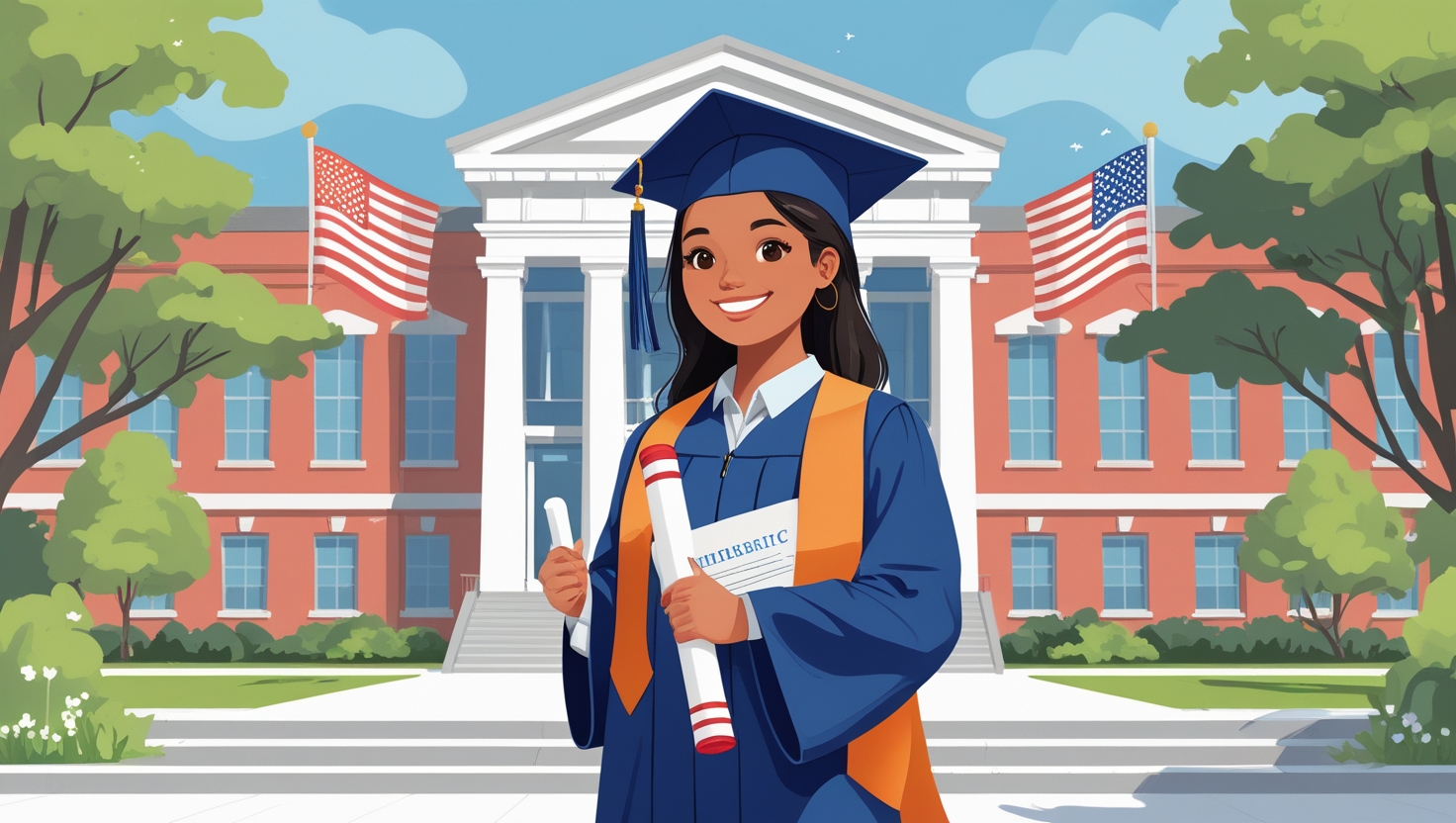Introduction
For many students around the world, studying in the United States is the ultimate academic dream. With world-class universities, state-of-the-art facilities, and endless opportunities, the USA has become the top destination for higher education. However, alongside the prestige comes a major obstacle: cost. Tuition fees alone can range from $20,000 to $60,000 per year, not to mention living expenses, books, travel, and health insurance. For international students, who usually don’t qualify for in-state tuition or federal aid, the costs can seem nearly impossible to manage.
This is where full-ride scholarships come into play. Unlike partial funding or tuition discounts, full-ride scholarships cover almost everything a student needs to complete their degree without financial stress. They are extremely competitive but life-changing. In fact, for many international students, a full-ride scholarship is the only way they can turn their dream of studying in the USA into reality.
In this article, we’ll explore everything you need to know about full-ride scholarships in the USA for 2025—what they cover, who can apply, the top programs available, and practical tips to maximize your chances of winning one.
What is a Full-Ride Scholarship?
A full-ride scholarship is the most comprehensive type of financial award available to students. While many scholarships cover tuition fees, a full-ride scholarship goes much further by taking care of nearly all expenses associated with studying in the USA.
Difference Between Full-Ride and Full-Tuition Scholarships
- Full-Tuition Scholarship: Covers only tuition fees. You’re still responsible for housing, meals, books, and other expenses.
- Full-Ride Scholarship: Covers tuition plus additional costs like housing, meals, travel, insurance, and sometimes even personal expenses.
In other words, a full-ride scholarship means you can attend university without paying anything out of pocket. This makes it the most sought-after type of scholarship, especially for international students.
What Do Full-Ride Scholarships Cover?
A true full-ride scholarship is designed to eliminate financial stress entirely. While benefits vary depending on the program, most cover the following:
- Tuition Fees: 100% of your tuition is paid, no matter how expensive the program is.
- Accommodation & Meals: On-campus housing and meal plans are usually included.
- Books & Study Materials: Many programs provide allowances for textbooks and supplies.
- Travel Costs: Some scholarships cover airfare to and from the USA.
- Health Insurance: Essential for international students, since US healthcare is very costly.
- Monthly Stipends: Some full-ride scholarships even provide living stipends to cover personal expenses.
Essentially, full-ride scholarships allow you to focus on academics and personal growth without worrying about money.
Why Do Universities Offer Full-Ride Scholarships?
You might wonder, “Why would a university give away education worth hundreds of thousands of dollars for free?” The answer lies in the mutual benefits of scholarships.
- Attracting Global Talent:
- US universities compete to recruit the best students worldwide. Offering full-ride scholarships helps them attract top talent who might otherwise choose universities in other countries.
- US universities compete to recruit the best students worldwide. Offering full-ride scholarships helps them attract top talent who might otherwise choose universities in other countries.
- Promoting Diversity:
- Universities value international perspectives. By offering scholarships, they ensure a diverse campus that enriches learning for everyone.
- Universities value international perspectives. By offering scholarships, they ensure a diverse campus that enriches learning for everyone.
- Supporting Outstanding Students:
- Full-ride scholarships reward excellence. Whether in academics, leadership, sports, or community service, these scholarships recognize students who bring exceptional value to the university.
- Full-ride scholarships reward excellence. Whether in academics, leadership, sports, or community service, these scholarships recognize students who bring exceptional value to the university.
- Enhancing Reputation:
- A strong group of full-ride scholars boosts the university’s prestige, both nationally and globally.
- A strong group of full-ride scholars boosts the university’s prestige, both nationally and globally.
In short, while students benefit financially, universities benefit academically, culturally, and reputationally.
Who is Eligible for a Full-Ride Scholarship?
Eligibility requirements vary depending on the scholarship, but generally, recipients fall into these categories:
- Academic Excellence:
- High GPA, strong standardized test scores, and consistent academic performance.
- Many full-ride scholarships are merit-based, meaning your grades and achievements matter.
- High GPA, strong standardized test scores, and consistent academic performance.
- Leadership & Extracurriculars:
- Universities want more than “book-smart” students. They look for leaders—students active in sports, clubs, community service, or entrepreneurship.
- Universities want more than “book-smart” students. They look for leaders—students active in sports, clubs, community service, or entrepreneurship.
- Financial Need:
- Some scholarships, like the Gates Scholarship, target students from low-income backgrounds. Applicants must demonstrate financial hardship.
- Some scholarships, like the Gates Scholarship, target students from low-income backgrounds. Applicants must demonstrate financial hardship.
- Special Talents:
- Certain full-ride scholarships are awarded to exceptional athletes, artists, or innovators. Athletic scholarships, for example, are highly common in the US.
- Certain full-ride scholarships are awarded to exceptional athletes, artists, or innovators. Athletic scholarships, for example, are highly common in the US.
- Nationality or Background:
- Some programs are restricted to students from specific countries, minority groups, or first-generation college students.
- Some programs are restricted to students from specific countries, minority groups, or first-generation college students.
The key takeaway: you don’t need to be a perfect student in every way. Different scholarships look for different strengths—academic, leadership, financial need, or special talent.
